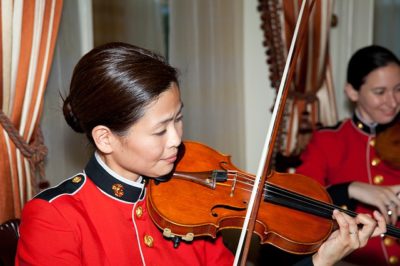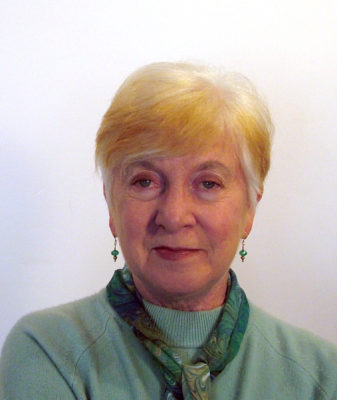
Frank Fiodalisi’s excellent February 12 WAG presentation focused on the old mantra, “Write what you know.” He aptly demonstrated the value of using your own work experience to bring credibility to your writing: e.g. verisimilitude. Or perhaps Truthiness. But what if you’re writing about a subject that is outside your own experience? That’s when another word presents itself: Research.
According to author Scott Francis in “How to Research Your Novel,” a 2012 article in Writer’s Digest, “research” is a word that fills many creative writers with dread. “But unless you want the people reading your story to roll their eyes and say ‘that would never happen,’ . . . it pays to do your due diligence.”
My mother was a research librarian, so maybe I’m genetically predisposed. Or maybe it’s the result of spending a great deal of my career as an academic. But for whatever the reason, I LOVE research. Of course, research is a major factor in writing nonfiction. You’re presenting yourself as an authority on a topic, so it pays to provide your reader with the best up-to-date information you can find.

But why should you spend hours of your time doing research for a work of fiction? After all, it’s your story, so who cares if it’s factual? Your readers, that’s who. They want to be convinced. They want to be drawn in. They want to go somewhere that only you can take them. So give them a break. Or at least due respect. Make it feel as real as you can. Here are some ways to accomplish that:
- Expectations: Before you start writing, research the market for your genre and adjust your expectations accordingly. Is the story too unusual or too conventional? Is the market already saturated? Are you ahead of the trend curve or will you be behind it by the time the story gets out?
- Details of setting: Research the location/s where your story takes place. You want to immerse your reader in the setting, so pay attention to details. Visit the place if you can. Take photos. Make notes. Pay attention to details: smell, seasons, flora and fauna, architecture. What kinds of shops line the street? Where would your characters hang out, eat dinner, go for a hike? If you’re writing historical fiction, you still need to establish a real sense of place. Even if you’re writing sci-fi you’ll need to make the world believable. If you can’t visit in person, use the Internet. Google Map’s location tools can let you wander through almost anywhere. Travel videos are invaluable. Try real-estate sites. They will take you right into real people’s homes. You might take a look at maps, (old and new).
- Time period: What’s happening in the time of your story? Were there major world events? Wars? Earthquakes? Famine or flood? This is, of course, especially significant if you’re writing about a particular period. What was going on in politics? Clothing? Language? Technology? Go to a library (yes, they really do still exist) and read up on the period. Interview “old timers” about what they remember.
- Technology and specialization: What types of technology are available to your characters? Do they drive dogsleds or Toyotas? Do they have a cell phone or a little black book? When did most people get a refrigerator and get rid of their ice box? If your characters are involved in a specialized field like archaeology or police work, you’ll need to become familiar with the job description, jargon, uniform, working conditions, etc. You can take some “creative liberties,” (this is fiction, after all), but try to avoid rookie mistakes.
-

skeeze / Pixabay Your characters: How do you research your characters? I always feel that when I “invent” a character, I have to get to know them. Really well. Like family. Even closer, because I have to know not only what they look like and how they dress and how they talk and what they do for a living, I also have to know what’s going on inside their heads. What are they thinking? What are they feeling? How will they react to the incidents that take place in the story? I have to get to know them so well that I can anticipate their next move, their next word. How do I do that? Observe and remember. I’m a relentless eaves-dropper. I love to listen in on other people’s conversations. They often say things I would never have thought of. I also like to immerse myself in little sub-cultures. When I was writing about a character who was a music student at the Berkshire Music Center, I paid a visit. I got to know some of the students. I hung out with them. Went to rehearsal with them. Went out to a bar with them. Made notes on how they talked, what they ate, their gestures, expressions, clothes. It was very educational. I also try to find out things about my characters that surprise me. I look for things I wouldn’t have suspected about them. I do astrological charts on them. Numerology charts. What does their Chinese horoscope say about them? Sometimes I’m really shocked by what I learn.

- Organization: Finally, find a way to organize your research. Whether you go the old-fashioned route and use binders or file folders or store everything in “the cloud,” have a plan. Know where to find the information you’ve gathered, Then all you have to do is plug it in at the right place in your story. Yeah, right. As Edward R. Murrow liked to say, “Good night and good luck.”

Mary Bast
Hi Mallory, and thanks for an informative blog post and the touch of humor. I appreciate the personal note, as well, knowing your mother was a librarian. I, too, seem to have the research gene, though without any obvious forebears. Even our blog posts involve research, and every post I write for the Bacopa Literary Review Editors’ Blog involves some exploration and learning from other sites about writing.